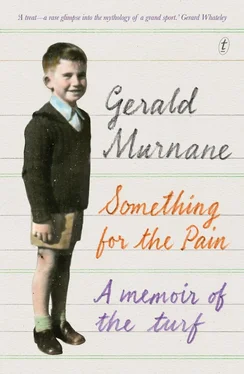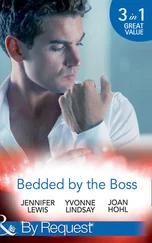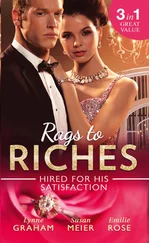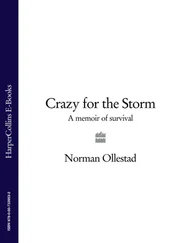She was an interesting woman, this nurse. She had no rings on her fingers and seemed to be the sort of person who had never been interested in men. In answer to my question, she was immediately on the front foot. Too many doctors and nurses, she said, treated their patients as though they were bodies only. She, this aggressive nurse, was ready, unless her patients objected, to offer them comfort by talking of the spiritual world that surrounded the material world. She was even ready to assure them that the spiritual part of them would survive their bodily death.
I let her talk. I was more intrigued than she could have known. She had not much more to tell me. It concerned a dear friend of hers who had died of cancer. The friend had been a woman, and had promised to send a sign from the spiritual world, if such a thing turned out to exist. The dying woman and her dear friend, my informant, had agreed on what the sign should be. My informant was no idle gossiper. While she was telling me this she was making entries in her diary and completing other paper work. She was at my front door when she delivered her punch line. ‘I got my sign,’ she said. She was already on her way to the front gate when she gave me her parting message: ‘I got exactly the sign I had asked for,’ she said. ‘The spirit world is out there. It’s all around us.’
If the woman had not been a non-stop nurse and teacher, I might have had an opportunity to tell her that my wife and I had already made the sort of pact that she, the nurse, and her dear friend had made. Catherine and I had both been brought up in the Catholic Church but had later lapsed, as they say. I had lapsed many years before she, and yet by the time when she was dying she seemed to believe in nothing, whereas I would have shared the beliefs of the outspoken nurse.
I wrote in an essay that was later published in my book Invisible Yet Enduring Lilacs that a writer such as myself would probably cause less offence to readers and scholars if he confessed to being a sexual deviant than if he confessed to believing in a world of the spirit — to being other than a materialist. I hereby confess that I have never been a materialist. I have no belief in any gods or angels or demons, but I have believed all my life in an invisible world of the spirit.
I mentioned a pact between my wife and myself. It should probably not be called a pact, because Catherine never actually agreed to it. I suggested it to her often, and long before she was diagnosed with cancer. She always responded with silence. I took this to mean that she would take part in the pact if it proved to be possible but that she would prefer to wait and see. The terms of the pact, or whatever it should be called, required the first of us to die to arrange for the survivor to back, on the first Saturday after the other’s death, a winner at odds of twenty-to-one. When devising the terms of the pact, I had given much thought to the matter of what the winner’s odds should be. To have asked simply for a winner would have proved nothing. To have asked for a winner at twenty-five-to-one or even longer odds seemed to be asking too much. I had never kept statistics, but I would have estimated that a twenty-to-one winner occurred about once in every month at a Saturday meeting, or once in every thirty races. Of the horses that contested those races, about sixty might have been at odds of twenty-to-one. But the person who had to fulfil the pact from the spirit-world was not only required to arrange for a once-a-month event to take place in a particular week — he or she had to make sure that the twenty-to-one winner was a selection of the survivor.
Catherine died on the Thursday before the Blue Diamond Stakes at Caulfield in February 2009. I could have made her task vastly more achievable if I had spent Blue Diamond Day backing only horses at twenty-to-one, but that would have been cheating. I made her task difficult indeed. For some years past, I had been following a select list of horses. I had their names in a ledger — two hundred of them, in several states. They were mostly younger horses with good form. I added two to my list each week and removed two that had disappointed me in recent months. I bet fifty dollars win-only on the tote on every one of my horses at every one of its starts. In the previous five years, I had twice earned a small annual profit. In the other three years, I had lost only very small sums. So, on the first Saturday after Catherine’s death, I was committed to backing the horses that I would have backed in any case, even though none of them might have been at double-figure odds, let alone twenty-to-one.
About twelve of my select list of horses were engaged on the crucial day. I had starters in several states of Australia, but the only one likely to start at about twenty-to-one was in the Blue Diamond Stakes itself, the rich race for two-years-old horses. Because I kept many smart two-years-old horses on my list, I had to back four in the Blue Diamond. I’ve forgotten the names of three of the four but not their odds. One was the warm favourite, which was trained at Flemington by Steve Richards and had dark-blue and orange colours. Another was at about ten-to-one. Still another was at about forty-to-one. The name of the fourth of my horses is the title of this section. When I backed the horse, it was showing about sixteen-to-one on the tote.
I wrote somewhere far back in this book that I’m not a mumbo-jumbo man. Before the Blue Diamond, I made sure to tell my friend David Walton about the pact that I had tried to arrange with Catherine. David once told me that he had been an atheist and a materialist since his early childhood. I didn’t tell him about the pact in order to convert him. I merely thought I should have at least one witness if anything significant happened that day. I have no recollection of anything that happened in the Blue Diamond Stakes of 2009 until the field was well into the straight. I was not tense or anxious on account of my two hundred dollars that was riding on the result, but I felt as though something of enormous consequence was about to be decided. My hands could not keep my binoculars steady.
My first recollection is of Reward for Effort (White, red logo and cap) leading by several lengths at the top of the straight. Next, I saw the favourite, in the dark blue and orange, urged forward in pursuit of the leader. People who have watched races for decade after decade learn to be acute judges of comparative speeds of horses and to estimate precisely the outcomes of races long before the contestants reach the post. I understood at once that the favourite was going to win comfortably. I had not forgotten that I had backed the favourite. If it won, I would have got back most of my outlay on the race. But money was not my concern. During the last minute before the race, I had learned that the odds against Reward for Effort had lengthened somewhat. As the horses approached the two-hundred-metre post, I felt a strange dismay. I felt as though Catherine had tried but had failed. Or, worse still, I felt a fool. The universe itself was mocking me.
The results of the Blue Diamond Stakes show Reward for Effort as the winner. The stewards reported after the race that the favourite had choked on its tongue in the straight. I recall nothing whatever of Luke Nolen’s bringing his mount back to the winner’s stall or of Peter Moody’s greeting them. I don’t even recall my collecting my thousand dollars and more, but I’ll never forget that the winner paid twenty dollars and a few cents.
26. They’re Racing in the Antipodes
I VAGUELY RECALL a comedy routine from the years before television, which were, of course, the years of radio. It was probably a recording that was played occasionally on one or another radio station. The subject matter was a mock radio program. Ads, songs, news items, and much else went forward rapidly. No doubt the stuff was mildly humorous and satirical, but I heard it seldom and I’ve forgotten all except the announcer’s frequently interrupting proceedings with a short, sharp statement. The first words were always, ‘They’re racing…’ What followed was at first mildly provoking: ‘…at Alice Springs’ or ‘…at Oodnadatta’. One of the later statements is still quoted sometimes today by persons who probably never heard the original context but who enjoy the euphony—‘They’re racing at Manangatang.’ As I recall, the last such statement, near the end of the whole program, was ‘They’re racing on Mars.’
Читать дальше












